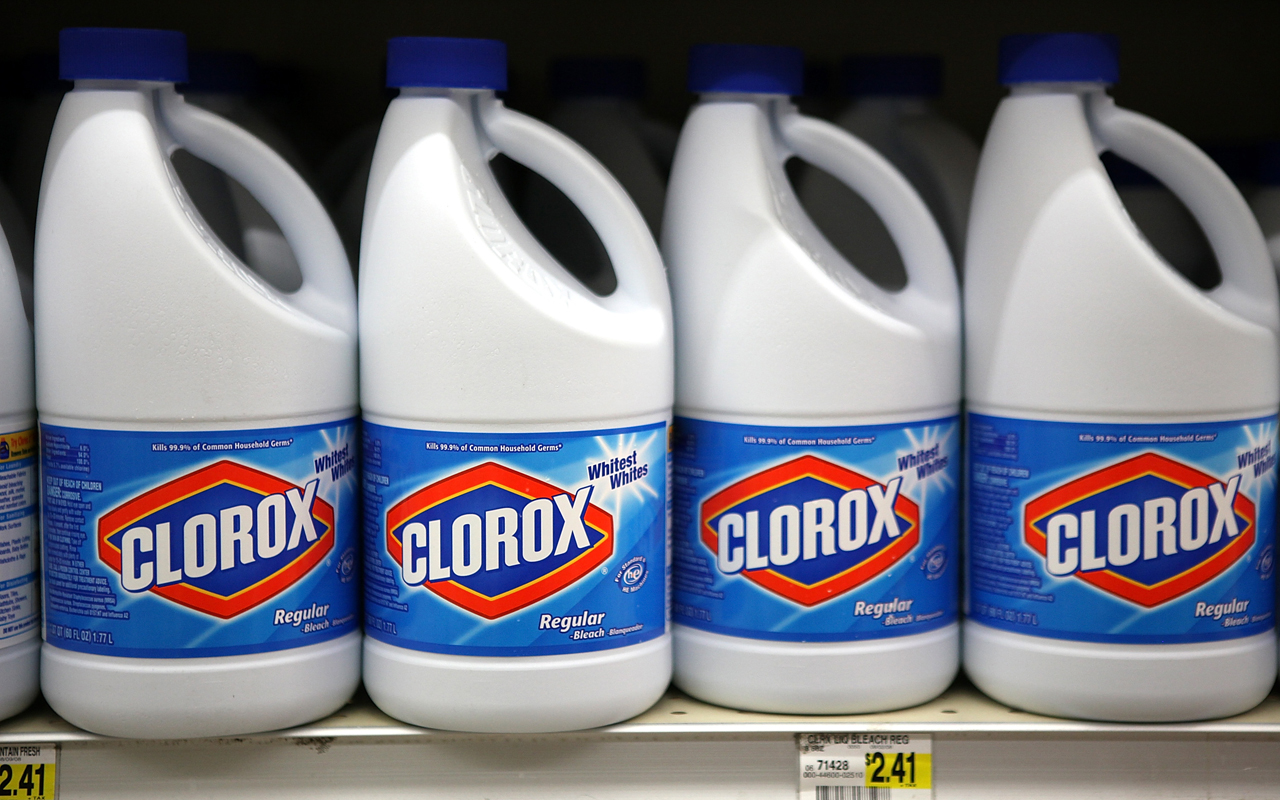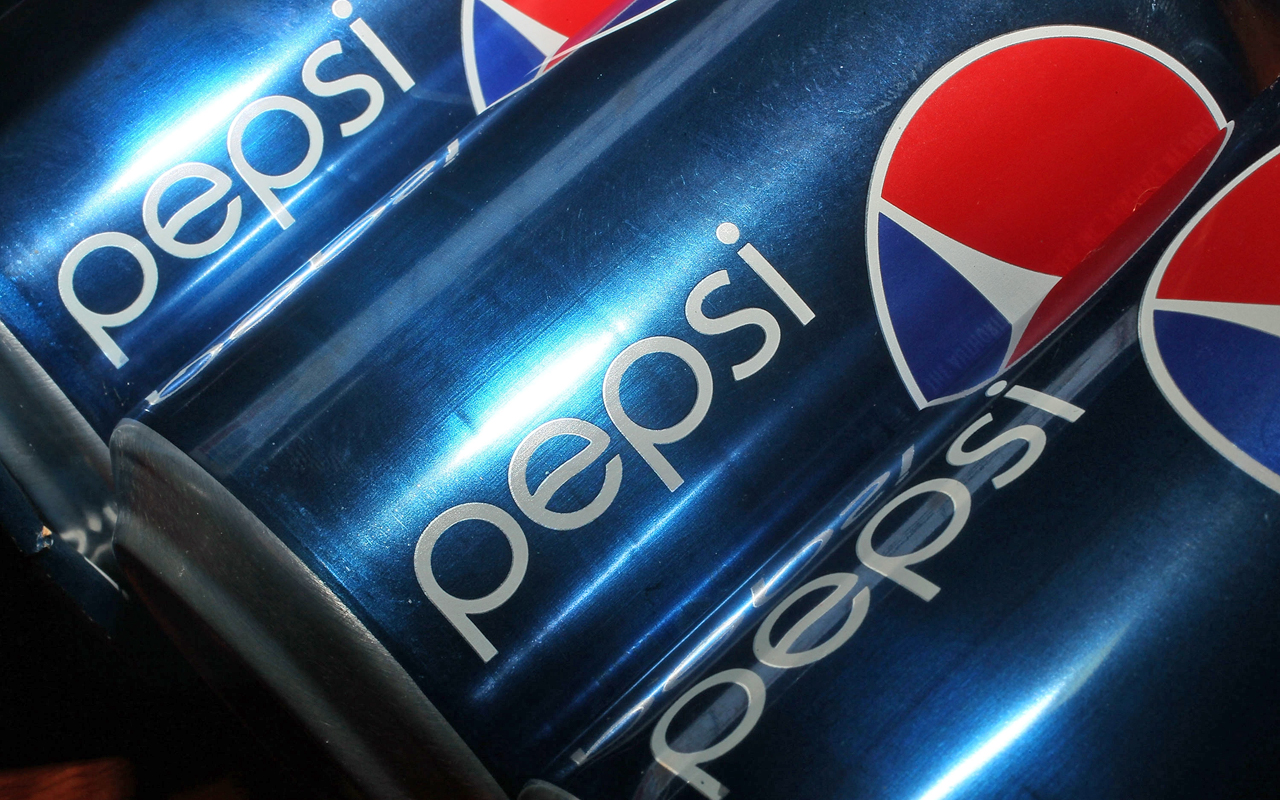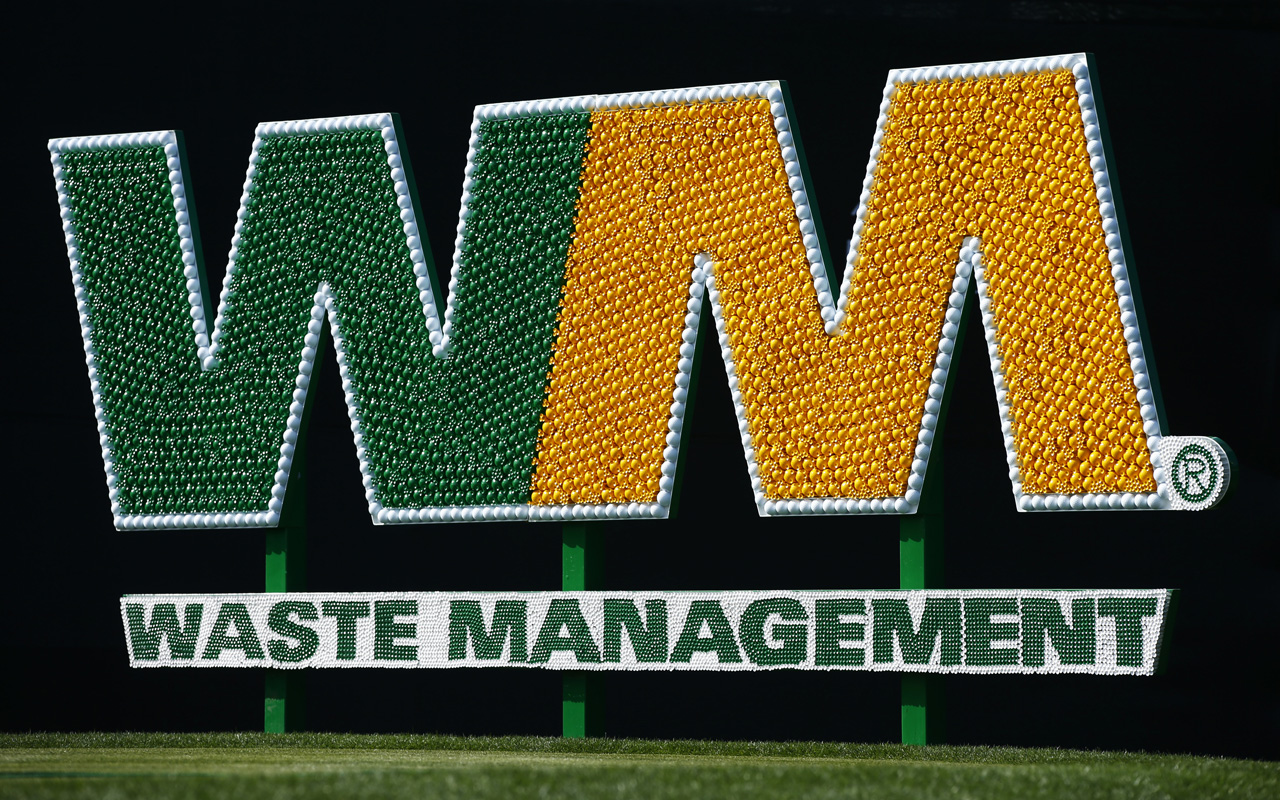5 Dividend Stocks to Buy for Quality and Safety
Geopolitical tensions, rising interest rates, and rich asset valuations are only some of the factors holding back American stocks this year.


Profit and prosper with the best of Kiplinger's advice on investing, taxes, retirement, personal finance and much more. Delivered daily. Enter your email in the box and click Sign Me Up.
You are now subscribed
Your newsletter sign-up was successful
Want to add more newsletters?

Delivered daily
Kiplinger Today
Profit and prosper with the best of Kiplinger's advice on investing, taxes, retirement, personal finance and much more delivered daily. Smart money moves start here.

Sent five days a week
Kiplinger A Step Ahead
Get practical help to make better financial decisions in your everyday life, from spending to savings on top deals.

Delivered daily
Kiplinger Closing Bell
Get today's biggest financial and investing headlines delivered to your inbox every day the U.S. stock market is open.

Sent twice a week
Kiplinger Adviser Intel
Financial pros across the country share best practices and fresh tactics to preserve and grow your wealth.

Delivered weekly
Kiplinger Tax Tips
Trim your federal and state tax bills with practical tax-planning and tax-cutting strategies.

Sent twice a week
Kiplinger Retirement Tips
Your twice-a-week guide to planning and enjoying a financially secure and richly rewarding retirement

Sent bimonthly.
Kiplinger Adviser Angle
Insights for advisers, wealth managers and other financial professionals.

Sent twice a week
Kiplinger Investing Weekly
Your twice-a-week roundup of promising stocks, funds, companies and industries you should consider, ones you should avoid, and why.

Sent weekly for six weeks
Kiplinger Invest for Retirement
Your step-by-step six-part series on how to invest for retirement, from devising a successful strategy to exactly which investments to choose.
Geopolitical tensions, rising interest rates, and rich asset valuations are only some of the factors holding back American stocks this year. Trying to game this kind of market is a fool’s errand – no one can accurately forecast the market’s short-term performance with any consistency.
But identifying dividend stocks to buy that have safe and growing payouts can lead to steadier returns during volatile and calm times alike. In fact, dividends have made up about 40% of total returns for U.S. stocks since 1970, per data from JPMorgan.
Today’s list of five high-quality dividend stocks not only offer safe payouts, but possess defensive characteristics that are likely to help investors preserve capital during the next downturn. These businesses all have excellent Dividend Safety Scores – a metric developed by Simply Safe Dividends to help investors avoid dividend cuts and generate safer income. Since 2016, the Dividend Safety Score system has correctly flagged 98% of dividend cuts before they happened.
Besides offering a safe payout, the following five stocks have an average yield above 3%, have paid higher dividends each year for more than a decade, outperformed the S&P 500 Index during the financial crisis, have relatively low betas (i.e., low stock price volatility compared to the market) and generate recession-resistant cash flow streams. Here are five dividend stocks to buy for quality, growing payouts.
Data is as of May 3, 2018. Dividend yields are calculated by annualizing the most recent quarterly payout and dividing by the share price. Click on ticker-symbol links in each slide for current share prices and more.

Consolidated Edison
- Sector: Utilities
- Dividend yield: 3.5%
- Consolidated Edison (ED, $79.00) is no exception. The firm provides electric service to about 3.3 million customers and gas service to another 1.1 million consumers and businesses located around New York City.
Regulated utilities are often a core component of most defensive income portfolios, and for good reason. These businesses are essentially government-sanctioned monopolies, typically operating as the sole service provider in their territories.
However, to ensure their infrastructure is reliable and their prices remain reasonable for customers, utility operations – including allowed returns on equity – are regulated at the state level. As long as regulators maintain constructive relationships with a utility and the utility delivers its projects on time and on budget, these businesses generate extremely reliable cash flow streams.
ConEd’s operational expertise and healthy relationship with regulators has allowed it to increase dividends for 44 consecutive years, recording 3% annual payout growth over the past five years. Argus analyst Jacob Kilstein, CFA, maintains a long-term annual earnings growth rate estimate of 3% for the utility, so a similar pace of dividend growth can likely be expected going forward.
Kilstein also writes that Consolidated Edison “continues to benefit from a solid capital expenditure program, strong cost controls, positive economic conditions in its service territory, and conversions from oil to gas heat.”
Consumers and businesses continue to need electric and gas power through all manner of economic environments too, and Consolidated Edison will be there to provide it for them, delivering higher dividends to shareholders along the way.

Clorox
- Sector: Consumer staples
- Dividend yield: 2.9%
Despite their defensive qualities, many consumer-staples companies have seen their share prices suffer recently. Increased competition from private-label and upstart brands, the continued rise of Amazon (AMZN) and input cost inflation have all weighed on the sector.
Founded in 1913, Clorox (CLX, $118.49) offers products covering a wide range of categories, including charcoal, home care, laundry, trash bags, and water filters. Despite its breadth, management has been very deliberate in only pursuing categories that Clorox can dominate.
Morningstar sector director Erin Lash notes that even though Clorox “faces outsize competition from private-label offerings, 80% of Clorox’s U.S. sales are from brands that are number one or two in their categories.”
The firm’s continuous investments in R&D and advertising, which total “about $700 million annually in aggregate,” help Clorox protect its brands and shelf space with retailers. Clorox, powered by its impressive cash flow generation, has rewarded shareholders with higher dividends each year since 1977 and should continue to be a reliable income stock.

Digital Realty Trust
- Sector: Real Estate
- Dividend yield: 3.6%
- Digital Realty Trust (DLR, $104.97) is a leading global data center real estate investment trust (REITs) – an appealing sector for income investors – that serves the needs of more than 2,300 companies operating in numerous different industries.
Many REITs enjoy very stable cash flow thanks to their long-term leases with customers, enabling them to pay generous dividends. Digital Realty has been able to raise its dividend for 13 consecutive years thanks in part to the mission-critical nature of its properties.
The non-discretionary nature of data center spending is demonstrated by Digital Realty’s occupancy rate, which has averaged about 80% over the long-term and exceeded 90% in 2009.
In an increasingly digital world, all sorts of businesses are generating ever-growing amounts of electronic data that need to be stored and processed, regardless of economic conditions. Rapidly growing internet traffic is also expected to continue driving demand higher for data center hubs, providing a long-term tailwind for the company.
Thanks to its impressive scale, essential services and blue-chip customer base, Digital Realty’s dividend is on solid ground and should continue growing for many years to come.

PepsiCo
- Sector: Consumer staples
- Dividend yield: 3.3%
Despite its brand name, there is much more to PepsiCo (PEP, $97.60) than carbonated beverages – and that’s a good thing, because sodas are facing growth pressures in developed markets as consumers opt for healthier choices.
Pepsi’s portfolio is simply enormous, covering a number of leading snack and nonalcoholic beverage brands, including 22 with more than $1 billion in annual sales.
Morningstar analyst Sonia Vora expects Pepsi’s noncarbonated beverage and snack businesses will enable the firm “to offset the impact of secular declines in carbonated soft drink volumes in developed markets,” which account drive about one quarter of Pepsi’s sales today.
Pepsi’s leading brands, hefty marketing budget, continuous launch of new products, and massive global distribution network all ensure that the company will remain a force for many years to come.
Not surprisingly, the business has been very kind to income investors over the decades. In fact, Pepsi has paid uninterrupted dividends since 1965 and increased its payout each year for more than 40 years, including a generous 15% boost announced in February 2018.

Waste Management
- Sector: Industrials
- Dividend yield: 2.1%
While far from glamorous, the trash collection business actually enjoys several competitive advantages. Waste Management (WM, $82.94) is the biggest player in North America and has a network of 244 solid waste landfills, 102 recycling facilities, more than 300 transfer facilities, and thousands of vehicles.
One of the great things about trash disposal is that there aren’t any viable substitutes today, making Waste Management’s service all the more essential. Even during downturns, consumers and businesses alike continue generating waste that needs to be collected. Furthermore, while the rise of e-commerce is disrupting many industries, it actually benefits the trash collection industry because more boxes and shipping materials need to be disposed of.
When combined with the company’s impressive base of 21 million customers, which enables a very efficient and well-utilized trash collection network, it’s no surprise that Waste Management has been a cash cow over the years. As a result, management has increased the company’s dividend for 15 consecutive years, including a 9% boost earlier this year.
Bill Gates’ investment manager appears to value Waste Management’s long-term outlook as well since he holds a large stake in the company. Simply Safe Dividends provides analysis on all of the dividend-paying stocks owned by Bill Gates’ investment trust here.
Brian Bollinger is long DLR, ED, PEP and WM.
Profit and prosper with the best of Kiplinger's advice on investing, taxes, retirement, personal finance and much more. Delivered daily. Enter your email in the box and click Sign Me Up.

Brian Bollinger is President of Simply Safe Dividends, a company that provides online tools and research designed to help investors generate safe retirement income from dividend stocks without the high fees associated with many other financial products.
-
 5 Vince Lombardi Quotes Retirees Should Live By
5 Vince Lombardi Quotes Retirees Should Live ByThe iconic football coach's philosophy can help retirees win at the game of life.
-
 The $200,000 Olympic 'Pension' is a Retirement Game-Changer for Team USA
The $200,000 Olympic 'Pension' is a Retirement Game-Changer for Team USAThe donation by financier Ross Stevens is meant to be a "retirement program" for Team USA Olympic and Paralympic athletes.
-
 10 Cheapest Places to Live in Colorado
10 Cheapest Places to Live in ColoradoProperty Tax Looking for a cozy cabin near the slopes? These Colorado counties combine reasonable house prices with the state's lowest property tax bills.
-
 What Fed Rate Cuts Mean For Fixed-Income Investors
What Fed Rate Cuts Mean For Fixed-Income InvestorsThe Fed's rate-cutting campaign has the fixed-income market set for an encore of Q4 2024.
-
 The Most Tax-Friendly States for Investing in 2025 (Hint: There Are Two)
The Most Tax-Friendly States for Investing in 2025 (Hint: There Are Two)State Taxes Living in one of these places could lower your 2025 investment taxes — especially if you invest in real estate.
-
 The Final Countdown for Retirees with Investment Income
The Final Countdown for Retirees with Investment IncomeRetirement Tax Don’t assume Social Security withholding is enough. Some retirement income may require a quarterly estimated tax payment by the September 15 deadline.
-
 The 24 Cheapest Places To Retire in the US
The 24 Cheapest Places To Retire in the USWhen you're trying to balance a fixed income with an enjoyable retirement, the cost of living is a crucial factor to consider. Is your city the best?
-
 Five Stocks With Solid Growth History and a Promising Outlook
Five Stocks With Solid Growth History and a Promising OutlookFive reasonably priced stocks with solid growth history and a good chance of delivering earnings even if the economy softens.
-
 Dividends Are in a Rut
Dividends Are in a RutDividends may be going through a rough patch, but income investors should exercise patience.
-
 Municipal Bonds Stand Firm
Municipal Bonds Stand FirmIf you have the cash to invest, municipal bonds are a worthy alternative to CDs or Treasuries – even as they stare down credit-market Armageddon.
-
 High Yields From High-Rate Lenders
High Yields From High-Rate LendersInvestors seeking out high yields can find them in high-rate lenders, non-bank lenders and a few financial REITs.
